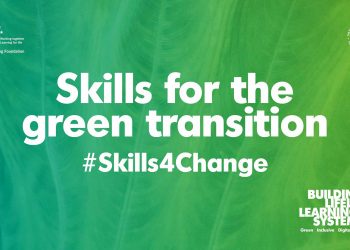Commissioner for Education, Culture, Youth and Sport hosted the second European Education Summit on 26 September 2019. This second edition of the Summit focused on the teaching profession under the title:
Teachers first:
Excellence and prestige for the European Education Area
- What challenges are teachers facing today and what future developments do we need to anticipate?
- Are teachers adequately recognised by society?
- Do they receive the support they need?
- What is teachers’ role in bridging education and active participation in society and the labour market?
These are just some of the questions explored in a discussion led by teachers with ministers, academics and civil servants at this year’s European Education Summit.
Commissioner Tibor Navracsics presented the 2019 Education and Training Monitor. The Monitor investigates how well teachers are faring and builds on the latest results of the Organisation for Economic Co-operation and Development’s (OECD) Teaching and Learning International Survey data, among other research.
European Education Summit
Alongside a number of in-depth discussions and keynote speeches, this year’s Summit included a workshop series entitled ‘The Classroom Experience’, which examined innovative teaching methods and technology use enhancing modern learning experiences across Europe.
European Education and Training Area
The Commission is developing initiatives to help establish a European Education Area enabling all young people to benefit from the best education and training, and to find employment across Europe.
How does the EU support education and training?
EU policy in the fields of education and training is designed to support action at the level of Member States. EU addresses common challenges, such as ageing societies, skills deficits, technological developments and global competition.
ET 2020
Education and training 2020 (ET 2020) is the EU framework for cooperation in the fields of education and training.
European Union also creates policies and initiatives in the following areas:
- Early childhood education and care
- School policy
- Vocational Education and Training
- Adult learning
- Higher education
- International cooperation and policy dialogue
- Multilingualism
- Education and migrants
Equal access to quality education is one of the EU’s central goals
Towards a European Education Area
It is in the shared interest of all EU Member States to harness the full potential of education and culture as drivers for job creation, economic growth and improved social cohesion, as well as a means to experience European identity in all its diversity.
The Commission is developing initiatives to help work towards a European Education Area. The vision contained within this policy is that, across the EU:
- spending time abroad to study and learn should become the norm
- school and higher education qualifications should be recognised across the EU
- speaking two languages should be standard – in addition to one’s mother tongue
- everyone should be able to access high-quality education, irrespective of their socio-economic background
- people should have a strong sense of their identity as a European, of Europe’s cultural heritage and its diversity
How is the EU working to deliver a European Education Area?
The Commission has presented a first package of measures addressing:
- key competences for lifelong learning
- digital skills
- common values and inclusive education
In its Communication on Building a stronger Europe: the role of youth, education and culture policies, the Commission has proposed a second package of initiatives highlighting the key role played by education, youth and culture in building the future of Europe.
- What challenges are teachers facing today and what future developments do we need to anticipate?
- Are teachers adequately recognised by society?
- Do they receive the support they need?
- What is teachers’ role in bridging education and active participation in society and the labour market?















